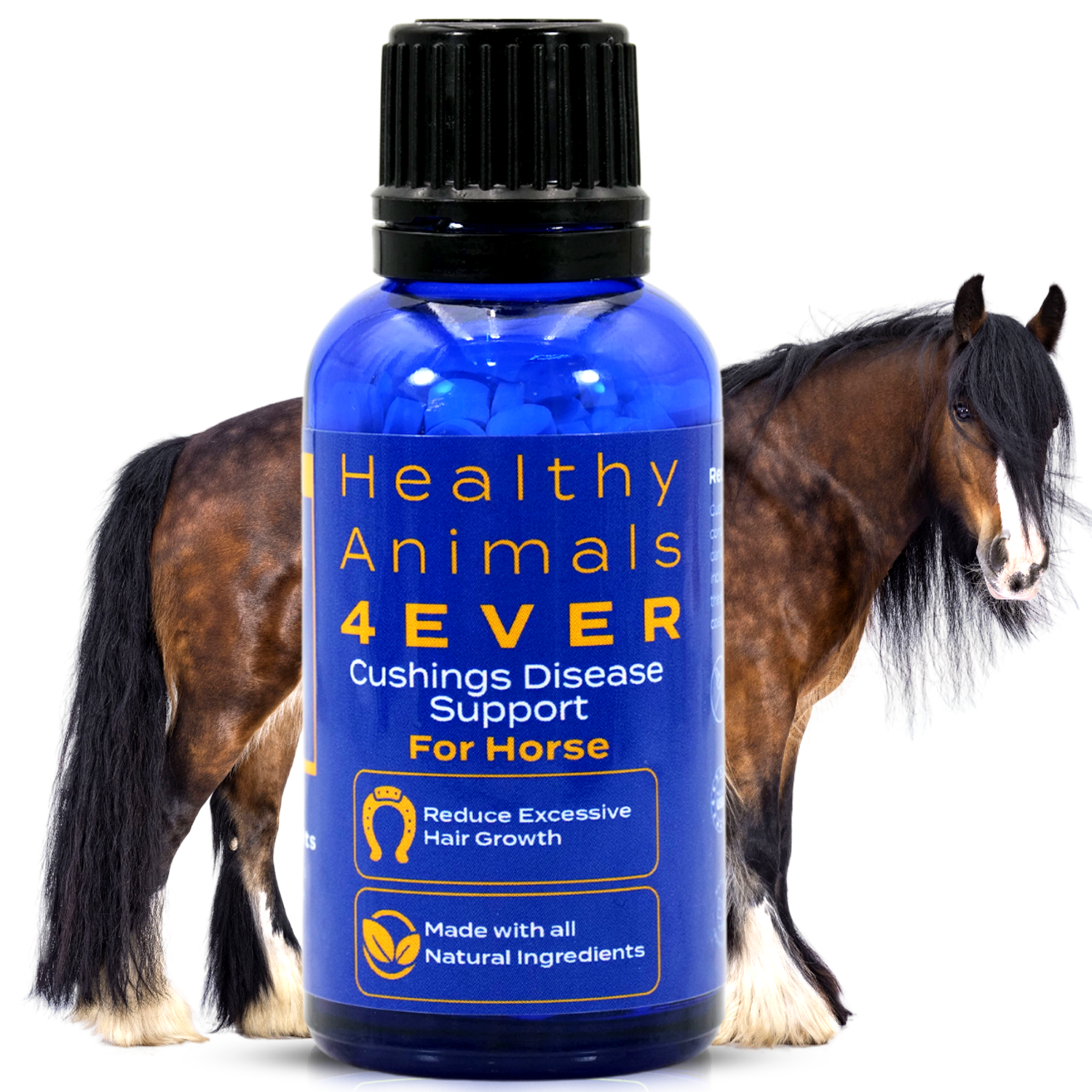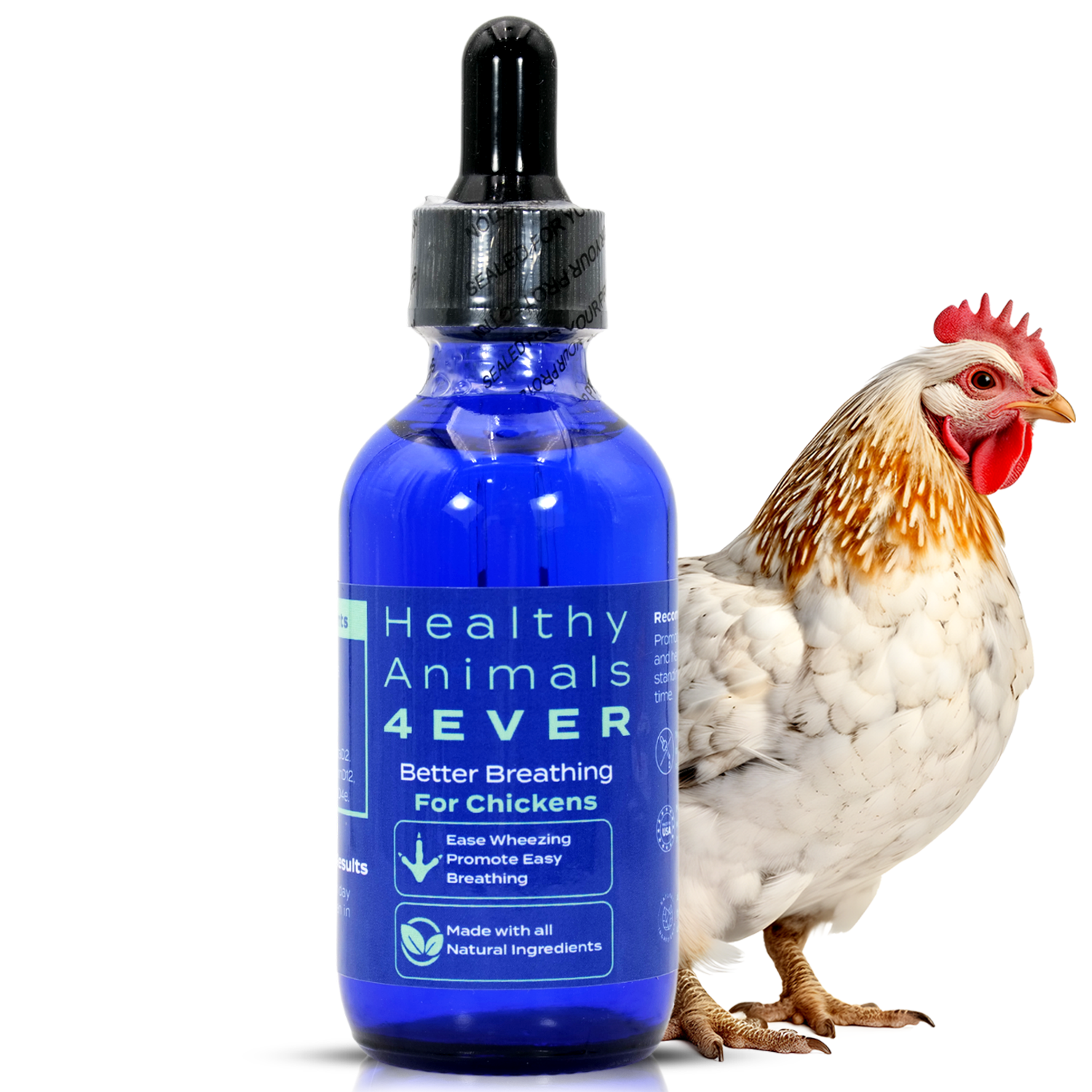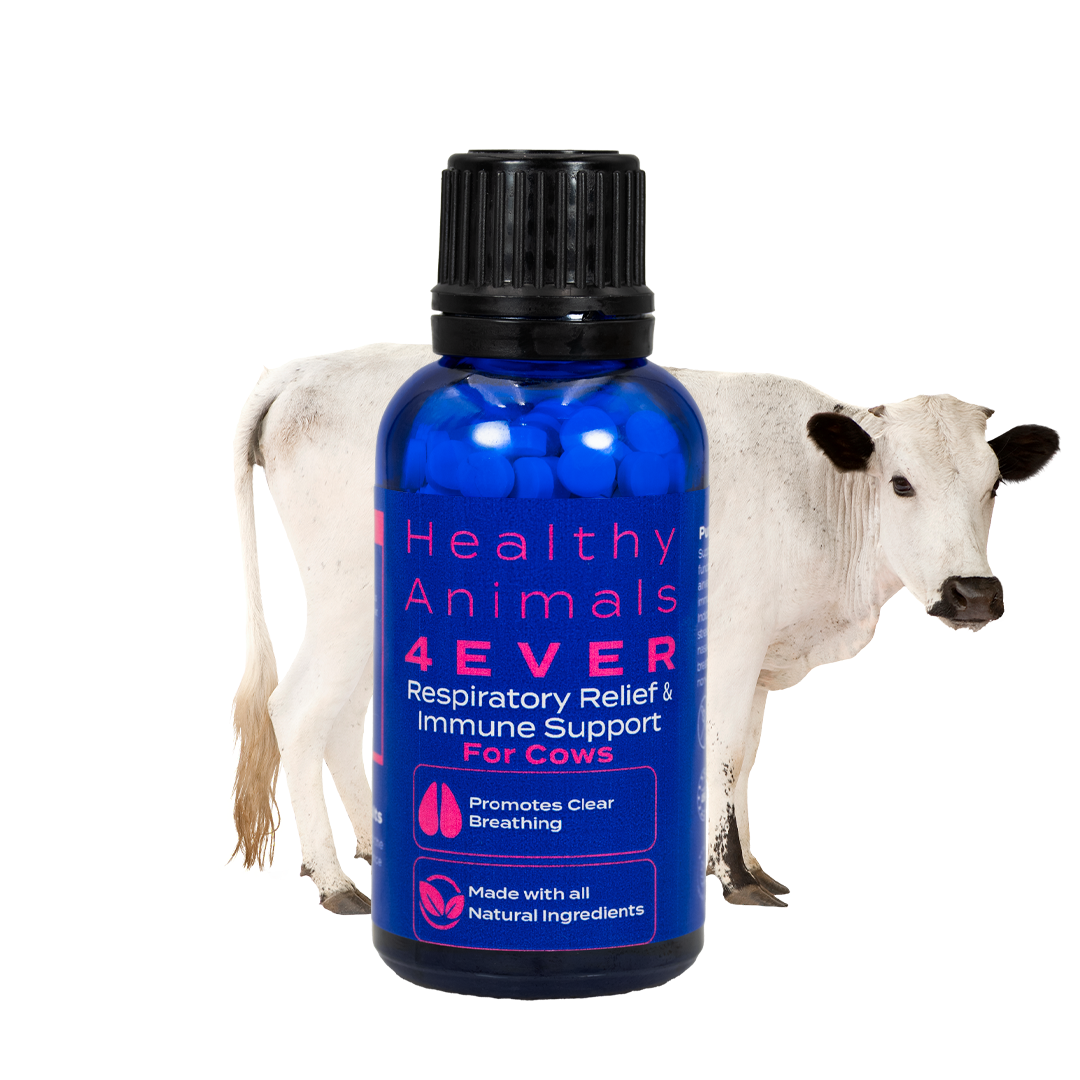Top 4 Essential Oils for Pets: Benefits, Uses, and Safety Tips
We all want the best for our pets, right? From nutritious food to regular vet check-ups, we take every step to ensure our pets are healthy and happy. But here’s something you might not have thought of: essential oils. These natural remedies aren’t just for people; they can also benefit our pets in various ways.
This blog will explore how four essential oils—lavender, chamomile, frankincense, and eucalyptus—that can improve your pet's well-being. We'll also share some tips on using them safely and combining them with homeopathy for even better results.
Anxiety and over-reaction from fear is a natural remedy for calmness and reduced fear in cats. It helps minimize stress and fear responses. Useful for generalized, separation, social, and environmental anxiety. All-natural formula. Non-drowsy relief. Easy to use.
1. Lavender oil
Lavender oil is an essential oil all-star, especially for pets. It's super versatile and can help with various issues. Just like lavender tea or a lavender-scented pillow helps us relax, the oil works wonders on pets, too.
For starters, lavender is fantastic for calming pets down. If your dog freaks out during thunderstorms or your cat gets stressed when you leave for work, a bit of lavender oil can help. You can put a few drops on their bedding or a favorite toy to make them feel more at ease.
Lavender oil is also great for soothing skin. If your pet has itchy spots, dry patches, or even minor cuts, lavender can help. Its anti-inflammatory and antiseptic properties mean it can reduce swelling and prevent infections. Mixing a drop or two with a carrier oil like coconut oil and gently rubbing it on the affected area can provide relief.
Another awesome thing about lavender oil is its ability to repel pests. Fleas, ticks, and mosquitoes hate the smell of lavender. You can make a natural bug-repellent spray by mixing lavender oil with water and apple cider vinegar. Spritzing this around their bedding or lightly on their coat can help keep those pesky bugs away.
Lavender can also help with minor aches and pains. If your pet has sore muscles from running around or an old injury, lavender oil can provide some relief. Dilute it with a carrier oil and gently massage them to ease their discomfort.
While lavender is generally safe for dogs and cats, it's always a good idea to check with your vet, especially if your pet has any health issues or if you're unsure about how to use it.

2. Chamomile oil
Chamomile oil is another great essential oil for pet care. It offers excellent benefits for pets and can significantly improve their well-being.
Chamomile is fantastic for calming pets down. Suppose your dog gets anxious during thunderstorms, or your cat freaks out when you vacuum. In that case, chamomile oil can help soothe their nerves. You can diffuse some in the room or put a few drops on their bedding to create a calming environment.
Chamomile oil is also great for skin issues. If your pet has itchy skin, rashes, or hot spots, chamomile can help. Its anti-inflammatory properties can reduce redness and irritation. Just mix a couple of drops with a carrier oil like coconut or olive oil and gently apply it to the affected area.
If your pet has digestive problems, chamomile oil can help with that, too. For sensitive stomachs or frequent nausea, a small amount of diluted chamomile oil rubbed on the belly can ease tummy troubles.
Chamomile oil can provide relief for pets with joint pain or muscle aches. If your dog overdid it at the park or your cat has a touch of arthritis, a gentle massage with diluted chamomile oil can help ease their discomfort.
Another great thing about chamomile oil is its ability to promote better sleep. If your pet has trouble settling down at night, chamomile can help them drift off more easily. A few drops on their bed or in a diffuser can create a peaceful atmosphere that encourages sleep.
Hip, joint, and back pain relief is a natural hip, joint, and back pain remedy for all dogs. Helpful for dogs with arthritis. Useful as an anti-inflammatory. All-natural formula. Safe and easy to use.
3. Frankincense oil
Frankincense oil has so many benefits packed into one little bottle that it can make a significant difference in your pet's life.
Frankincense oil is fantastic for boosting your pet’s immune system. If your pet catches every little bug, some frankincense oil might help. You can diffuse it in the air, add a drop to a carrier oil, and apply it to their paws or ears.
It's also excellent for reducing anxiety and stress in pets. If your dog gets anxious when you leave the house or your cat hates car rides, this oil can help. Diffusing it in their favorite hangout spot or applying a diluted drop to their collar can create a soothing atmosphere.
For pets with dry skin, eczema, or minor wounds, frankincense oil can help speed up healing. Its anti-inflammatory and antiseptic properties can reduce redness and prevent infections. Mixing a drop or two with a carrier oil and gently applying it to the problem area can work wonders.
Frankincense oil can relieve pain and inflammation for older pets or those with joint issues. If your dog has arthritis or your cat has sore muscles from jumping around all day, a gentle massage with diluted frankincense oil can help ease their discomfort.
Frankincense oil also supports better digestion. If your pet has a sensitive stomach or struggles with digestive issues, a small amount of diluted oil rubbed on their belly can help.
And here’s a fantastic bonus: frankincense oil can even help with focus and mental clarity. If you’re training your pet or working on some new tricks, diffusing frankincense oil can help them concentrate better.

4. Eucalyptus oil
Lastly, eucalyptus oil is another essential oil with many uses that can significantly impact your pet’s life.
Eucalyptus oil is fantastic for repelling pests. Fleas, ticks, and even mosquitoes hate the smell of eucalyptus. You can make a simple spray by mixing eucalyptus oil with water and apple cider vinegar. Spritzing this around your pet’s bedding or lightly on their coat can help keep those pesky bugs away.
Eucalyptus oil is also great for respiratory health. If your pet has a cold, cough, or respiratory issue, eucalyptus can help clear things up. The oil’s natural decongestant properties can make it easier for them to breathe. You can diffuse a little eucalyptus oil in the room where your pet spends most of their time.
Eucalyptus oil can provide relief for pets with sore muscles or joint pain. If your dog overdid it at the park or your cat feels stiff, a gentle massage with diluted eucalyptus oil can help ease their discomfort. Just mix a few drops with a carrier oil like coconut oil and give them a gentle rub.
Eucalyptus oil is also antibacterial and antifungal, making it great for skin care. If your pet has minor cuts, scrapes, or fungal infections, applying a diluted mixture of eucalyptus oil can help prevent infections and speed up healing.
Another cool thing about eucalyptus oil is its ability to act as a natural deodorizer. If your pet tends to get stinky, a light spray of eucalyptus oil and water can help freshen them up. You can also use it to keep their bedding and favorite spots smelling clean.
Some pets, especially cats, can be sensitive to essential oils, so you should check with your vet about this one too.
Better breathing respiratory support provides lung support for cats. It is helpful in fighting the infection and stopping coughing at its source. Useful in cases of asthma and other breathing difficulties. All-natural formula. Non-drowsy relief. Easy to use.
Tips for Safe Use
Now that you realize that using essential oils on pets can be amazingly beneficial, you must learn how to use them safely.
First and foremost, always dilute essential oils before using them on your pets. Essential oils are super concentrated, so putting them directly on your pet’s skin can be too intense and might even burn or irritate them. To dilute the essential oil, use a carrier oil like coconut, olive, or water. A good rule of thumb is to add one drop of essential oil to about 50 drops of carrier oil. This way, it's gentle enough for your pet.
Make sure to do a patch test first. Before going all-in with an essential oil, test it on a small area of your pet's skin. Apply the diluted oil to a spot and wait 24 hours to see if there's a reaction. If the skin looks fine and there's no sign of irritation, you're probably good to go.
It’s also important to know which oils are safe for your pet specifically and which aren’t. Some oils that are great for humans can be toxic to animals. For example, tea tree oil, while beneficial for people, can harm pets, especially cats. Other oils to avoid include citrus oils, cinnamon, and clove. Always double-check whether an oil is safe for your specific type of pet.
When diffusing oils, ensure your pet can leave the room if they want to. Pets have a stronger sense of smell than we do; sometimes, the scent can be overwhelming. Keep the room well-ventilated, and never trap your pet in a room where you're diffusing essential oils. This way, they can move to a different area if the smell becomes too much.
If you’re applying oils topically, focus on areas where your pet can’t easily lick it off. The back of the neck or the base of the tail are usually good spots. This helps prevent them from ingesting the oils, which can sometimes be harmful.

Speaking of ingestion, only add essential oils to your pet's food or water if you've consulted with a vet. Ingesting essential oils can be dangerous for pets, so it's best to avoid this unless you have professional guidance.
Always observe your pet’s behavior after introducing an essential oil. If they start acting strangely, like excessive drooling, vomiting, wobbling or seem off, stop using the oil immediately and wash the area with water. Then, give your vet a call to make sure everything’s okay.
Lastly, remember that less is more. With essential oils, a little bit goes a long way. You don’t need to use a lot to see benefits; too much can do more harm than good. Start with small amounts and see how your pet reacts before using more.
All digestive is a natural digestive support for dogs. It helps with stomach upset, diarrhea, and gastritis. It aids in restoring digestive balance and your pet’s comfort. All-natural formula. Easy to use.
Homeopathy & Oleotherapy
Combining homeopathy with oleotherapy can offer a comprehensive and holistic approach to pet health and wellness. Both practices focus on natural healing and can be complementary when used correctly. By targeting different aspects of an ailment, this combination can address various health issues more effectively.
First, it's advised to seek a holistic veterinarian who can guide the safe use of both homeopathic remedies and essential oils. They can help tailor a plan to address your pet’s specific health issues, considering factors like age, weight, and overall health.

Here are some examples of how integrated treatments can work:
1. Anxiety and Stress
For pets dealing with anxiety and stress, combining homeopathy and oleotherapy can provide significant relief.
Homeopathy: Use remedies like Aconite for sudden anxiety or Gelsemium for anticipatory anxiety. These remedies can help calm your pet naturally.
Oleotherapy: Diffuse Lavender or Chamomile oil in the room or apply diluted oil to your pet’s collar. The soothing scents can create a calming environment and help reduce anxiety levels.
2. Digestive Issues
Pets with digestive problems can benefit from the combined approach of homeopathy and oleotherapy.
Homeopathy: Remedies like Nux Vomica can help with indigestion or vomiting, while Arsenicum Album is effective for diarrhea. These can alleviate symptoms and promote better digestion.
Oleotherapy: Dilute Ginger or Peppermint oil and apply a small amount to your pet’s abdomen. These oils can help soothe the stomach and reduce nausea.
3. Skin Irritations
Homeopathic remedies and essential oils can address skin issues like irritations and wounds.
Homeopathy: Use Sulphur for itchy, irritated skin and Calendula for healing wounds. These remedies support skin health and accelerate the healing process.
Oleotherapy: Apply diluted Lavender or Frankincense oil to the affected area to reduce inflammation and promote healing. These oils have anti-inflammatory and antiseptic properties that can soothe and protect the skin.

The Bottom Line
To summarize, essential oils can be a great addition to your pet care routine. Whether using lavender to help your pet relax, chamomile to soothe their skin, frankincense to support overall health, or eucalyptus to help with respiratory issues, these oils offer a natural way to care for your pets. Remember to use them correctly and safely, following our discussed tips.
When combined with homeopathy, essential oils can provide a comprehensive approach to your pet’s health. So, why not give them a try? Your pet might just thank you in their own unique way












